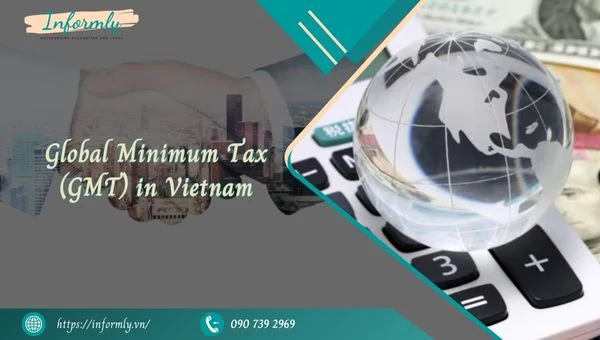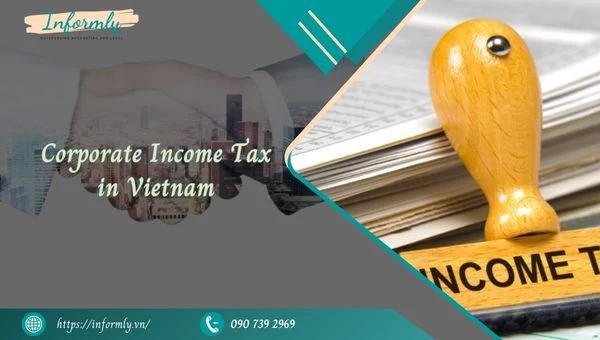A Representative Office (RO) is a popular and cost-effective entry option for companies looking to understand the Vietnamese market before committing to a larger investment. Often chosen by first-time entrants, this setup allows businesses to explore local opportunities with minimal financial risk. In this article, we’ll provide an overview of the steps required to establish an RO in Vietnam, including key considerations such as compliance, reporting requirements, and tax implications.
What is a foreign representative office in Vietnam?
A foreign representative office in Vietnam is a dependent entity that supports the business operations of its parent company. It can engage in activities such as establishing a local office, recruiting employees, managing and promoting business contracts, conducting market research, and more. Representative offices are commonly used by foreign investors for functions like product sourcing, quality control, and serving as a liaison between the head office and overseas operations.
Compared to branches or subsidiaries, representative offices are easier to establish as they do not engage in direct business activities (e.g., sales). This reduces the regulatory burden. The setup is simple and cost-effective, with no requirements for investment capital, Value Added Tax (VAT), Corporate Income Tax, accounting, financial statements, or independent audits. Additionally, representative offices are flexible, with straightforward procedures for extension, termination, or dissolution when needed.

==> See more: Accounting services
Permitted activities of foreign representative offices in Vietnam
Representative offices of foreign enterprises in Vietnam are authorized to perform the following activities:
- Serve as communication hubs for the parent company.
- Conduct market research.
- Facilitate investment projects for foreign enterprises.
- Oversee and monitor the implementation of projects in Vietnam funded by foreign enterprises.

Conditions for obtaining a license to set up a representative office in Vietnam
- The foreign investor must be incorporated and registered to do business in accordance with the laws of the country or territory that is a party to treaties to which Vietnam is a signatory, or is recognized by such countries or territories.
- The foreign investor must have been in operation for at least one year from the date of establishment or registration.
- The investor’s Certificate of Business Registration, or an equivalent document, must remain valid for at least one year from the date of the application submission.
- The scope of operations of the representative office must align with Vietnam’s commitments under international treaties. If the scope of the office’s activities does not align with these commitments, or if the foreign investor is not based in a country that is a party to these treaties, the establishment of the representative office can only proceed with the approval of the relevant Ministers or Heads of ministerial agencies.

==> See more: company establishment
Steps to register a representative office in Vietnam
Establishing a Representative Office (RO) in Vietnam involves the following key steps:
Step 1: Document preparation (Up to 3 Weeks)
To begin, the following documents need to be arranged:
- Lease agreement: A signed lease (or pre-lease) agreement for the location where the RO will be registered.
- Legal identification: A legalized passport or notarized ID card of the Chief Representative.
- Parent company documentation: Notarized or legalized documents from the parent company, including audited financial statements, are required for the application.
Step 2: Registration of representative office certificate (Up to 4 Weeks)
The application is submitted to the Department of Industry & Trade or the Management Boards of industrial parks or other special zones for approval.
Step 3: Post-licensing registrations (Up to 2 Weeks)
After receiving the necessary licenses and certificates, businesses must complete several post-licensing procedures, including:
- Obtaining stamps/seals
- Registering for taxes
- Paying business license fees
- Opening a bank account
- Registering labor-related matters

==> See more: Company registration
Post-Licensing Checklist for Setting Up an RO
Make a Seal:
- RO establishment license
- Chief Representative’s passport/ID card
Register Tax Code:
- Tax code registration form
- Power of attorney
- Seal registration certificate
- RO establishment certificate
Open a Bank Account:
- RO establishment license
- Seal registration certificate
- Tax code registration certificate
- Authorized signatory letter
- Additional bank documents
Announce RO Establishment: Public announcement of the RO setup.

Why is Informly the leading service provider for representative offices in Vietnam?
- Informly is a professional consulting firm, specializing in providing legal compliance and business support services. We are trusted by thousands of prestigious clients thanks to our deep understanding and solid foundation in the fields of: Business Law, Accounting and Corporate Finance, Tax Management, Labor Relations and Payroll.
- With the goal of building trust in the business community, Informly has become a reputable brand that businesses can trust in any local business compliance process. We have successfully supported thousands of leading companies from countries such as Hong Kong, Japan, the United States, the EU, Singapore, India, China, Korea… including FDI companies, foreign representative offices, foreigners working in Vietnam, Vietnamese small and medium enterprises, and executives.
- With core values of continuous improvement, in-depth understanding of Vietnamese business culture and regulations, and exclusive services, we are committed to providing comprehensive and legal solutions to optimize all your business activities in Vietnam.
If you have any questions or concerns regarding legal issues or the procedures required to establish a representative office in Vietnam, please contact Informly at 090 739 2969.
FQA?
A foreign company must apply for an adjustment to its RO license in the following situations:
- Changes in the foreign company’s head office name or location.
- Changes in the foreign company’s business lines that affect the RO’s operations in Vietnam.
- Replacement of the RO’s head.
- Changes in the RO’s name.
- Changes in the RO’s operational scope.
- Changes in the RO’s location.
According to Article 16 of Decree 07/2016/ND-CP, the required documents are:
1. Application form for RO License Adjustment (Form MD-3 from Circular No. 11/2016/TT-BCT).
2. Supporting documents for the adjustments:
- Head Office Name/Location Change: Copies of legal documents from competent authorities proving the change.
- Business Line Change: Copies of legal documents from competent authorities proving the change.
- Head Replacement: Appointment letter for the new head; copies of passport or ID card (for Vietnamese) or passport (for foreigners) of the new head; proof of personal income tax fulfillment by the previous head.
- RO Location Change: Copies of MOU or lease agreements or documents proving the right to use the new location.
3. Original RO license.
Important Notes:
- Documents proving changes (items 1, 2 and 3 above) in foreign languages must be translated into Vietnamese and notarized.
- Documents proving changes (items 1 and 2 above) must be certified or legalized by Vietnamese overseas diplomatic missions or consulates.
As per Article 17 of Decree 07/2016/ND-CP:
- Within 60 days of the change, the foreign company submits the application to the licensing agency (directly, by post, or online, if available).
- Within 3 working days, the agency reviews the application and requests completion if necessary (only one request allowed).
- Within 5 working days of receiving a complete application, the agency notifies the applicant of approval or rejection. Rejections must include reasons.
- For adjustments affecting RO operations (as specified in Clause 5, Article 7) or those not yet covered by specialized legislation:
- The agency requests guidance from the relevant Ministry within 3 working days.
- The Ministry responds within 5 working days.
- The agency notifies the applicant within 5 working days. Rejections must include reasons.
A foreign company applies for a re-grant of the RO license in two cases:
Relocation to another province/city:
- Application form (Ministry of Industry and Trade form).
- RO closure announcement submitted to the current licensing agency (Ministry of Industry and Trade form).
- Copies of the existing RO license.
- Documents related to the new RO location (MOU, lease agreement, etc., complying with Article 28 and related laws).
Loss, damage, or destruction of the RO license: Application form (Ministry of Industry and Trade form).
For relocation to another province/city:
- Within 30 days of submitting the closure notification, the foreign company applies for a re-grant to the new licensing agency (directly, by post, or online, if available). Failure to apply within this timeframe requires a new RO license application (per Articles 10 and 11 of Decree 07/2016/ND-CP).
- Within 3 working days, the agency reviews and requests completion if needed (one request allowed).
- Within 5 working days of receiving a complete application, the agency re-grants the license or issues a rejection notice with reasons.
For RO License renewal:
- Application form (Ministry of Industry and Trade form, signed by authorized representative).
- Copy of the foreign company’s Business Registration Certificate or equivalent (translated into Vietnamese and notarized/legalized in Vietnam).
- Copy of the audited financial statement or tax fulfillment certificate from the most recent fiscal year (translated into Vietnamese and notarized).
- Copy of the existing RO License.
- At least 30 days before expiry, the applicant submits the renewal application to the licensing agency (directly, by post, or online, if available).
- Within 3 working days, the agency reviews and requests completion if needed (one request allowed).
- Within 5 working days of receiving a complete application, the agency grants the renewal or issues a rejection notice with reasons.
- For renewals related to sectors not yet covered by specialized legislation, the agency requests guidance from the relevant Ministry within 3 working days. The Ministry responds within 5 working days. The agency then notifies the applicant within 5 working days. Rejections must include reasons.
A foreign company must close its RO in the following cases:
1. Decision by the head office.
2. Termination of the foreign company’s operations in its home country.
3. RO license expiry without renewal application.
4. Rejection of RO license renewal.
6. Revocation of the RO license due to:
- Inactivity for 1 year without notification.
- Failure to submit activity reports for 2 consecutive years.
- Failure to submit reports as required within 6 months or upon written request.
- Other legal grounds.
7. Failure of the foreign company or RO to meet the requirements of Articles 7 and 8 of Decree 07/2016/ND-CP.
- RO closure notification (Ministry of Industry and Trade form, signed by authorized representative), except in cases of license revocation.
- Copy of the RO license renewal rejection or revocation decision (if applicable).
- List of creditors and debts (including unpaid taxes and social insurance).
- List of employees and their current benefits.
- Original RO license.
Note: The RO head and foreign company are responsible for the accuracy of the closure documents. For relocation to another province/city, only the closure notification and original RO license are required.
- The foreign company submits the closure application to the licensing agency (directly, by post or online, if available).
- Within 3 working days, the agency reviews and requests completion if needed (one request allowed).
- Within 5 working days of receiving a complete application, the agency publishes the closure decision on its website.







